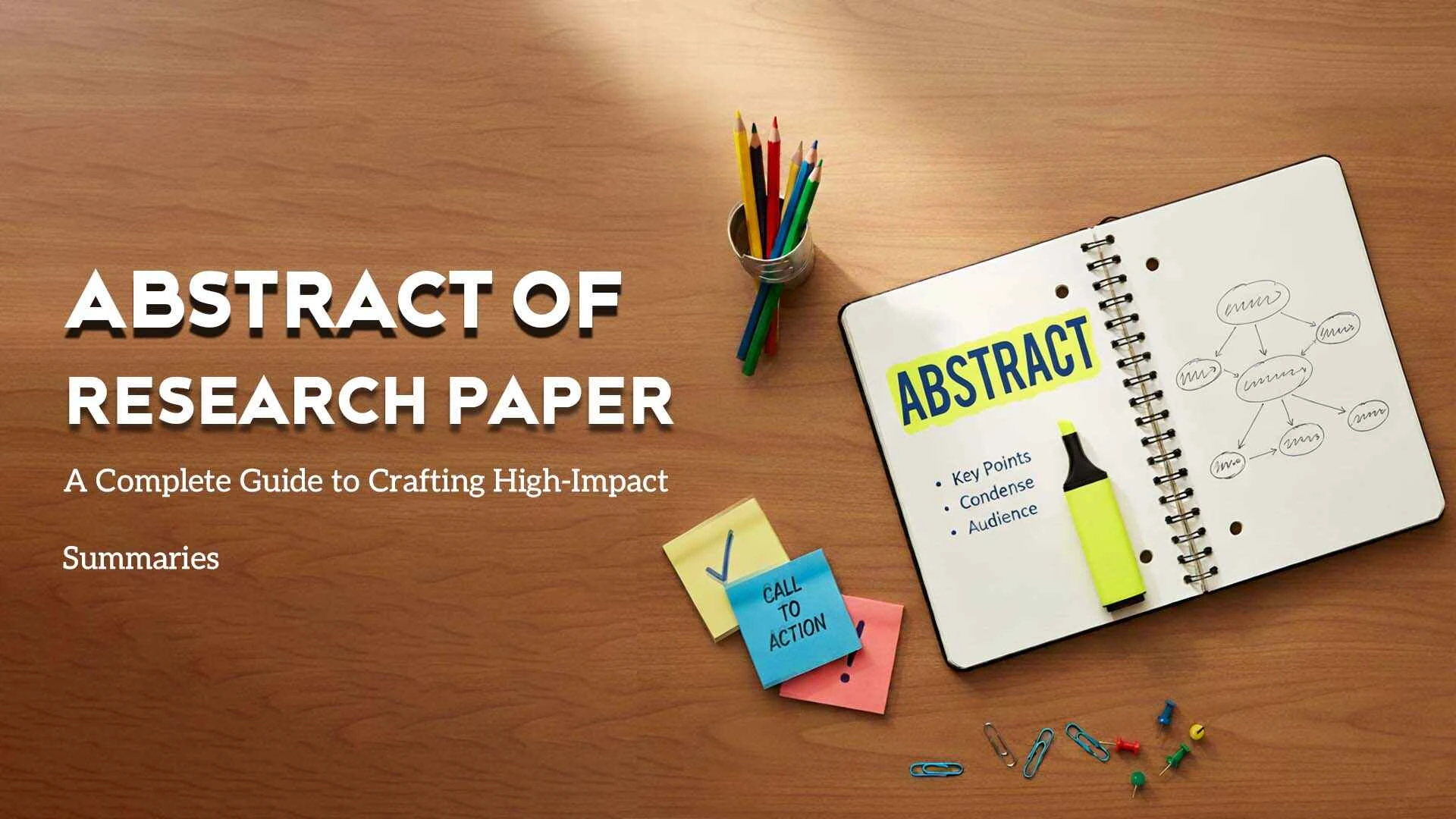
Sofia Marie
The abstract of the research paper is the first and foremost section that engages the readers in the research paper. It acts as a powerful gateway to your study. It offers a concise overview of the research, capturing its purpose, methods, and outcomes. Unlike the detailed section, the abstract is the section which needs to be clear, engaging and informative, and enabling readers to quickly understand the essence of your work. For any scholars who are aiming for publication success, mastering this section might be as crucial as understanding the research paper.
We recognise that a well-written abstract reflects clarity and originality. It also enhances visibility and credibility in academic publishing advanced for PhD Research. By focusing on reader engagement and precise summaries, you can set a strong foundation for impactful research. If you are preparing your next paper and need expert support, contact us to ensure your abstract truly stands out.
Ready to craft an abstract that gets noticed? Get support from us today!
The abstract of the research paper is a formal requirement, and it is the section that determines how your work will be received. Its primary purpose is to provide a concise snapshot of the study by outlining the research problem, objectives, methodology and key findings.
An abstract of the research paper allows readers to quickly grasp the essence of the work without having to read the full paper. Many scholars and professionals rely on the abstract to evaluate relevance, as it becomes the entry point for readers to explore further.
An effective abstract also strengthens academic visibility. Journals and indexing databases highlight abstracts, which directly influence how often a study is discovered, cited and referenced. A strong abstract contributes to higher recognition for the author.
We specialise in crafting abstracts that engage readers and enhance publication outcomes. We refine your research for global impact.
The abstract of a research paper is the gateway to your study, providing readers with a concise summary that captures the essence of your work. A well-crafted abstract ensures that your research stands out by clearly presenting the purpose, approach, findings, and significance of your study.
A strong abstract follows a structured approach that balances clarity, brevity, and accuracy. It typically includes four core elements:
Begin by clearly defining the research problem or question. This provides context and helps readers understand the relevance of your study. Make sure the problem is described in precise terms without unnecessary elaboration.
Summarise the methodology or research approach concisely. Highlight key techniques, data sources, or experimental design to demonstrate the rigour and reliability of your study. Focus on the essential aspects that support your results.
Present the main findings of your research clearly and succinctly. Emphasise the outcomes that directly address the research question and provide value to the reader. Avoid excessive technical details, but ensure that your results reflect accuracy and significance.
Conclude by summarising the implications of your research. Highlight how your study contributes to the field or offers solutions to the problem addressed. This ensures readers grasp the impact of your work quickly.
Use precise and professional language that communicates your ideas clearly.
Maintain a formal yet approachable tone suitable for academic readers.
Keep sentences concise and structured to enhance readability.
Prefer active voice and logical transitions to make your abstract more engaging.
A compelling abstract attracts readers and also increases the likelihood that your research will be noticed and cited. To ensure your abstract of a research paper meets the highest standards of clarity and impact, you can get support from us. Our professional research paper writing service is ready to guide you in creating summaries that effectively showcase your research.
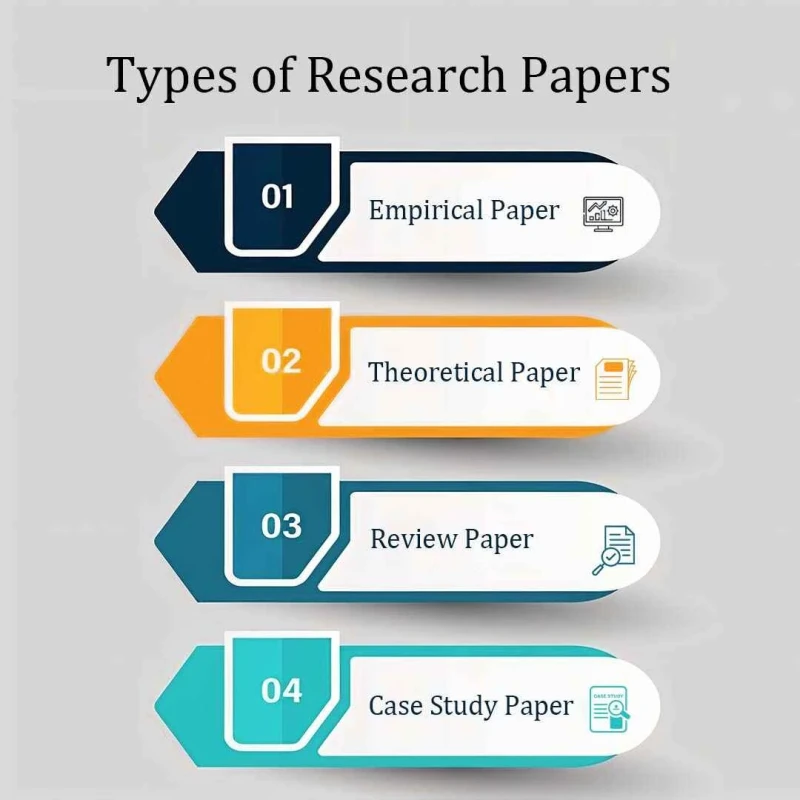
When writing an abstract of the research paper, it is important to remember that all kinds of abstracts are created equal. The style and focus of an abstract depend on the type of research paper, and understanding these differences helps you communicate your work more effectively.
The original research was based on data collection and analysis. Their abstract usually highlights the research problem, methodology, key findings and the main conclusion. Keeping the summary clear and concise ensures that readers have a quick grasp of the results.
Theoretical Papers explore concepts, models, or frameworks. The abstract focuses on the central argument, supporting theories, and the contribution to knowledge. Using precise language helps readers understand the significance of your work without going into detailed experiments.
Review Papers bring together existing studies on a particular topic. Their abstracts summarise the scope, key insights, and emerging trends. They need to present the overall findings concisely while highlighting gaps or opportunities for further research.
Case Study Papers examine specific instances or real-world examples in detail. The abstract outlines the context, methodology, key observations, and lessons learned. Balancing storytelling with analytical clarity is essential to keep it engaging and informative.
Since each type of paper requires a slightly different approach, tailoring your abstract to the audience and purpose is key. For professional guidance on crafting an impactful abstract of the research paper, you can contact us and receive expert support that ensures your research stands out.
Crafting an effective abstract of the research paper is an art and a science. A good abstract not only encapsulates your study but also decides if readers, reviewers, and journal editors will read your work. Through a structured step-by-step process, you can produce an abstract that is informative, concise, and consistent with your research goals.
Before you begin writing, define the purpose of your abstract. It must condense your research question, method, main findings, and implications. Consider who your audience is, whether academics, journal editors, or practitioners, and frame your terms accordingly. The relevance and clarity of your abstract are vital to capturing attention and maximising the chances of acceptance.
Begin by distilling each section of your research paper into a handful of sentences. State the research problem, outline the methodology, highlight the most important results, and finish with the implications or contributions of your research. Don't worry about word count or elegance of expression at this point; just try to convey the main ideas.
Organic inclusion of applicable keywords is key to being found in academic databases and search engines. Utilise keywords that are the core of your study, such as your main subject and key concepts. Steer clear of keyword stuffing and incorporate them naturally into easy-to-read sentences. This helps enhance SEO as well as ensure your abstract is related to what readers are looking for.
A good abstract is short and to the point. Edit your draft to eliminate wordiness, cut out jargon, and simplify long sentences. Every word should count, and the organisation should make sense logically from the problem statement to the conclusion. Professional readers are pleased with abstracts that convey complicated information concisely.
Various types of research papers—empirical, theoretical, review, or case study—demand subtly different abstracts. For empirical studies, highlight methodology and findings. For theoretical studies, emphasise arguments and contributions to the knowledge base. Review articles must highlight scope and synthesis, and case studies require context and the most important insights. Matching your abstract to your paper type ensures that it serves the reader's expectations and boosts credibility.
Your abstract should be completely original and not copied from any source. Even minor parts of text copied from your paper or anywhere else can be detected as plagiarism. Paraphrase the study using your own words, and cite critical sources, if necessary, briefly. Originality not only upholds academic honesty but also enhances the validity of your work.
After revising for content and structure, proofread your abstract carefully. Check grammar, punctuation, and readability. Consider reading it aloud to ensure it flows naturally and communicates your research effectively. A polished, professional abstract increases the chances of acceptance and reflects positively on your expertise.
Writing a good-quality abstract of the research paper is an important phase of the publication process. Through these steps, you can generate a clear, concise, and academically sound summary. For customised assistance in writing or editing your abstract, reach out to us today. Our professionals offer professional advice to make your research shine and gain the recognition it deserves.
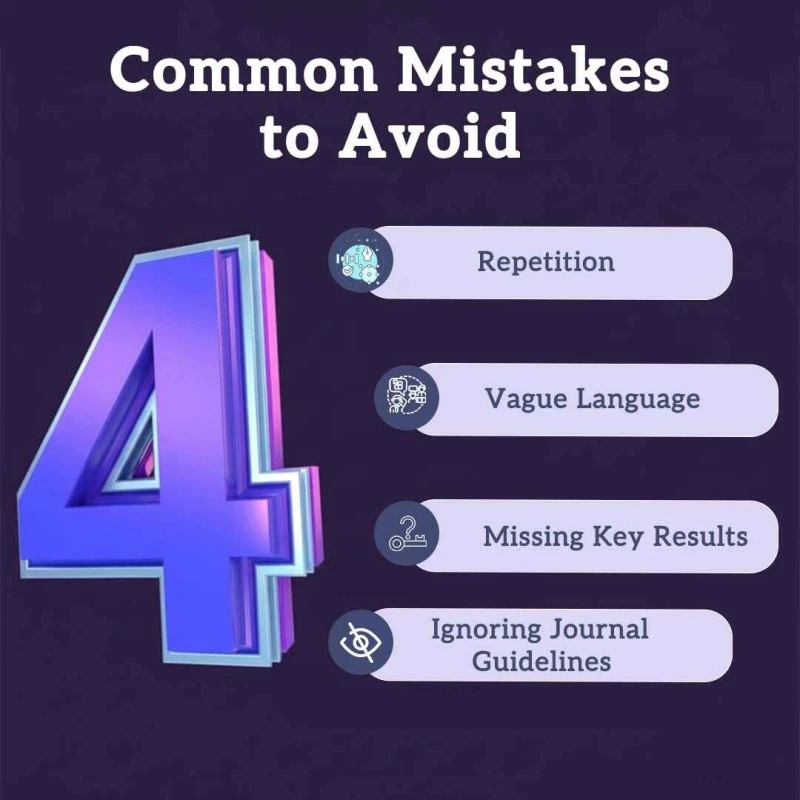
While drafting an abstract of the research paper, steer clear of these common mistakes to maintain clarity and professionalism:
Repetition: Repetitive repetition of the same details can make your abstract wordy and confusing.
Vague Language: Vague words or sentences that don't state anything concrete take away from the efficacy of your research. State things as precisely as possible.
Missing Key Results: Omitting key results gives readers the impression that they are not very important.
Ignoring Journal Guidelines: Failure to adhere to formatting, word counts, or structural guidelines can result in rejection or delays.
Going through these points ensures your abstract is concise, informative, and meets academic standards.
Employing the services of experts can go a long way in making your research paper's abstract better. Experts assist by:
Editing: Polishing language, enhancing clarity, and making it concise.
Proofreading: Eradicating grammar, punctuation, and formatting mistakes.
Structuring: Presenting the abstract in a way to effectively outline the problem, methods used, results obtained, and conclusion drawn.
Journal-Ready Preparation: Making the abstract publishable and conforming to publication standards and guidelines.
For professional assistance and expert advice, why choose expert research guidance
can assist you in writing abstracts that have a powerful impression and offer improved chances of acceptance.
Ahead of submitting your research paper abstract, employ this checklist to make it perfect and ready for publication:
Clarity: Ensure your thoughts are communicated clearly and briefly, so the readers may readily understand your study.
Word Count: Ensure your abstract is within the required journal or conference word count. Within limits, it indicates professionalism.
Formatting: Adhere to the prescribed style, headings, and structure guidelines to represent your work as is.
Grammar and Punctuation: Carefully proofread to remove errors that may distract or confuse the readers.
Keywords: Use relevant terms organically to enhance discoverability in scholarly databases.
Relevance: Make sure your abstract properly represents your study's theme, findings, and goals.
Impact: Emphasise the implications and value of your research to attract readers effectively.
Consistency: Double-check that the abstract matches the main paper in tone, content, and scope.
By doing this, your abstract becomes professional, readable, and journal-ready, standing a better chance of acceptance and making a strong impression on reviewers and editors.
A good research paper abstract is merely a synopsis; it's your study's initial impression on editors, reviewers, and readers. A well-written abstract that is concise, clear, and powerful makes your research memorable, conveys its importance, and raises the probability of publication.
Small enhancements in language, design, or readability can make a significant impact on the reception of your work. For authors who want to push their abstracts and achieve maximum success, expert advice can be priceless. Get in touch with us today for expert assistance and guarantee your abstract captures the worth of your research.
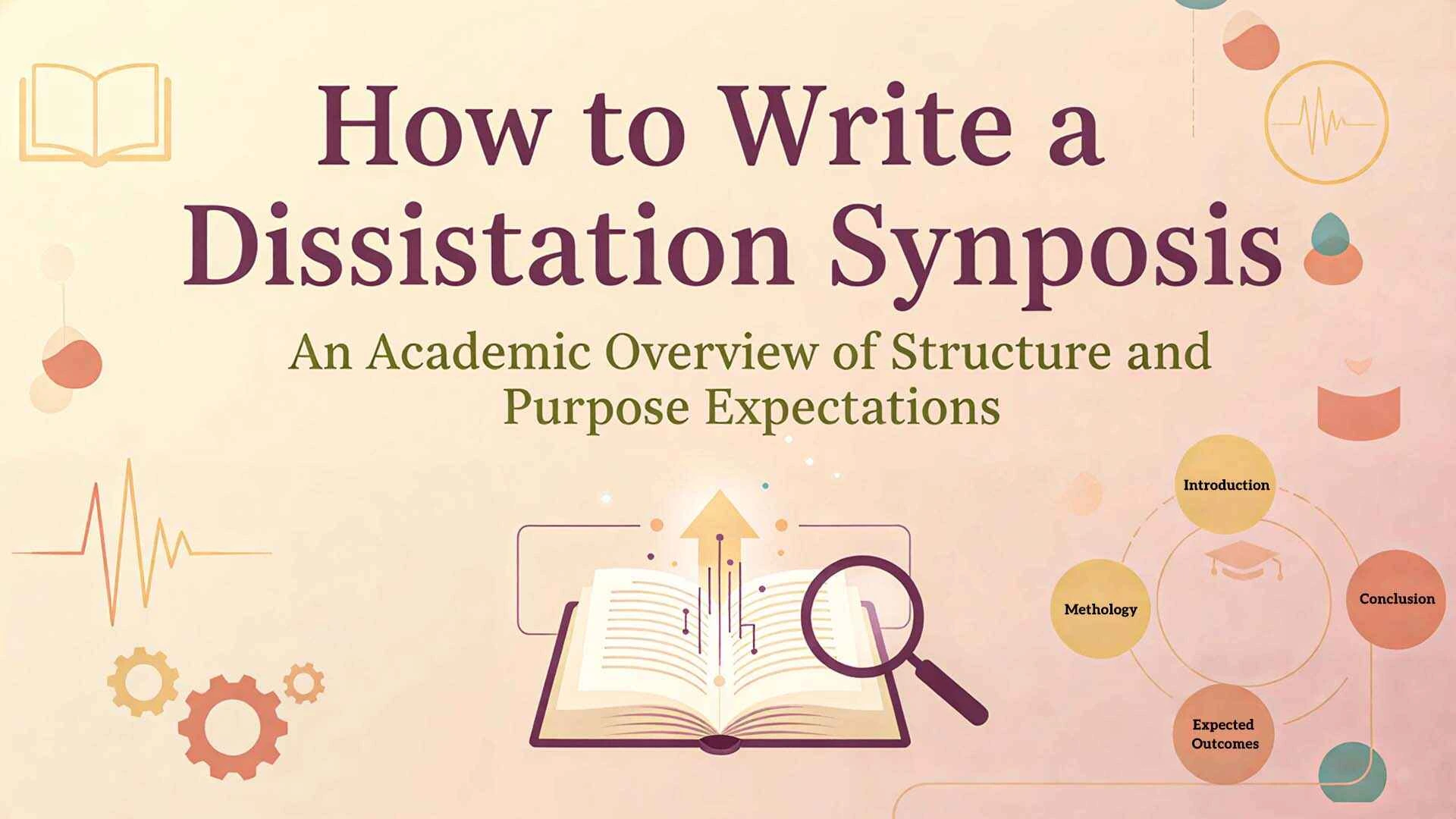
How to Write a Dissertation Synopsis that Gets Approved
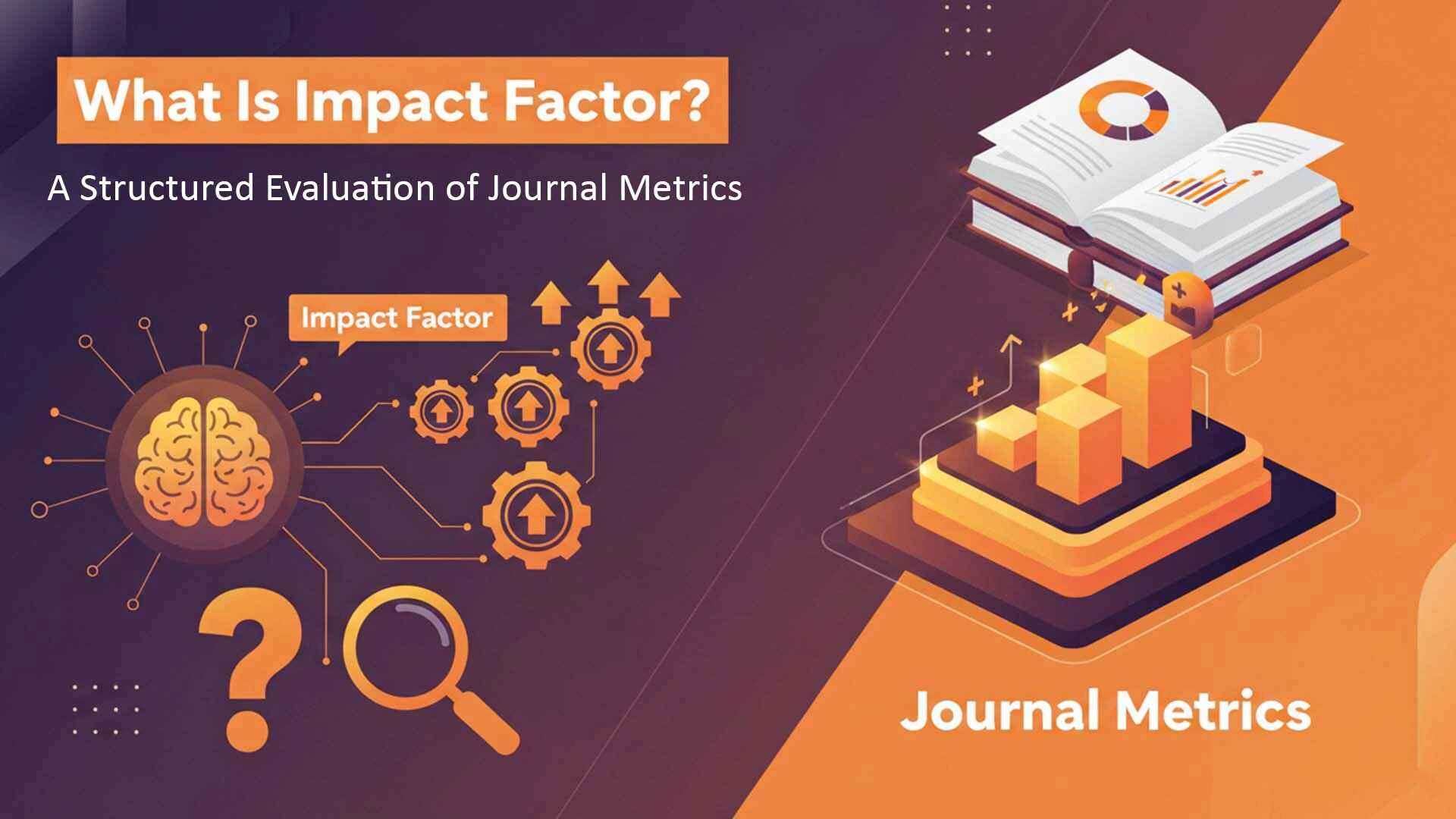
What Is Impact Factor? A Structured Evaluation of Journal Metrics

Cyber Security Research Paper: Topics, Insights, and Expert Guidance
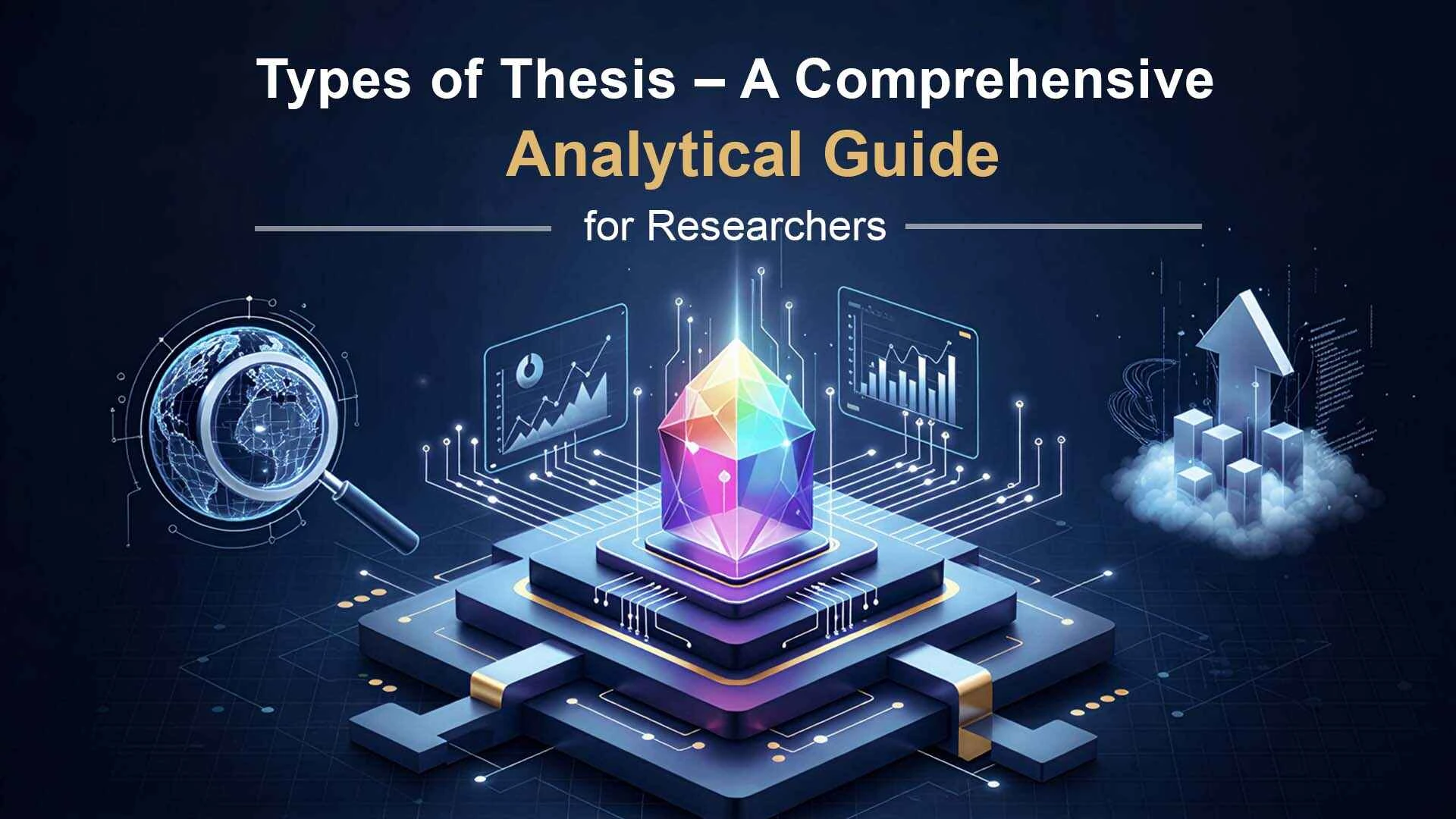
Types of Thesis – A Comprehensive Analytical Guide for Researchers
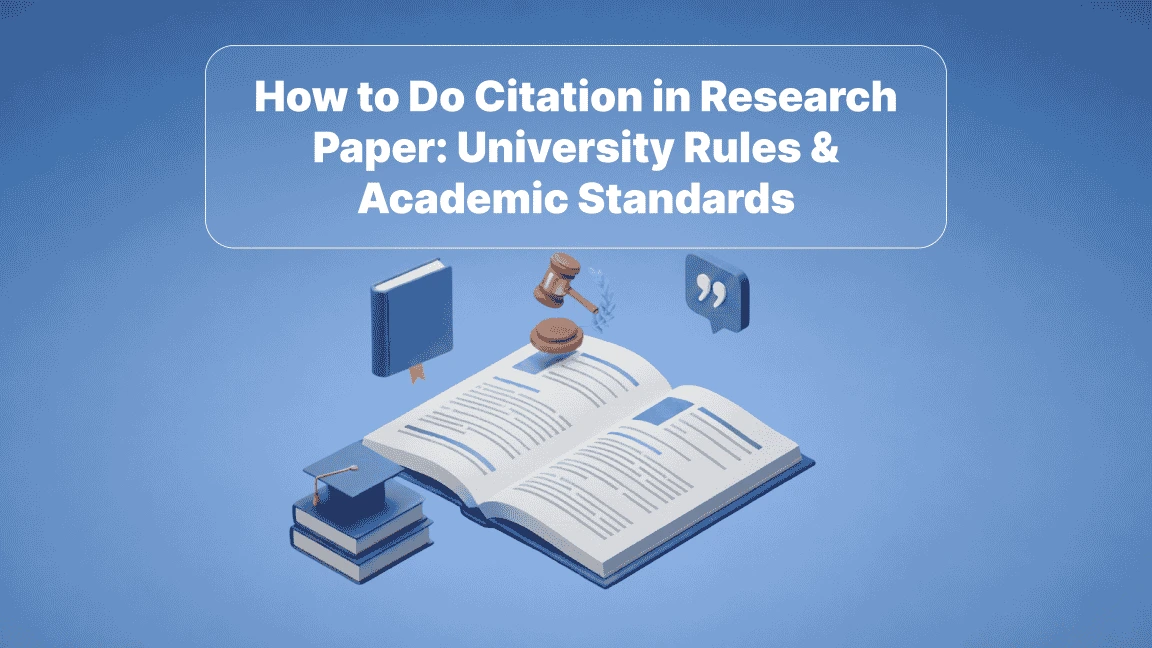
How to Do Citation in a Research Paper: University Rules & Academic Standards